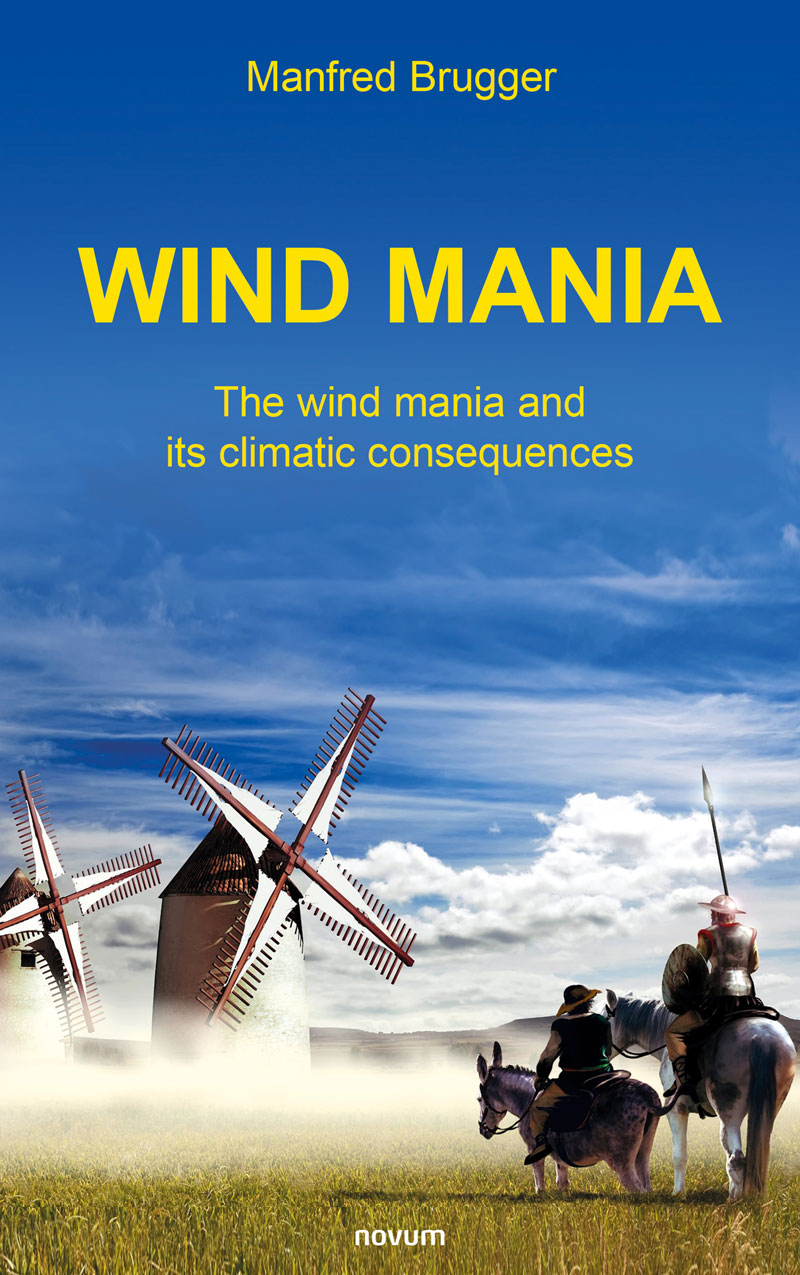Welcome to this site and thank you for your visit and the interest you have shown. The aim of this website is to provide further information on the topics of climate, CO2, environment and energy as well as on my book entitled "Wind mania - The wind mania and its climatic consequences". More about the book in the following interview:
What is the content of the book?
The book asks and answers many questions about the climate, makes many calculations and takes a critical look at the withdrawal of energy from the tropospheric system through the use of wind energy and the resulting dangers. The main problem is the impact on the forgotten or completely underestimated transport of water vapour.
What exactly do you mean by that?
Huge quantities of water are stored in the air as water vapour. These are transported by the wind. The wind needs its full power to do this. If the wind does not distribute the water evenly, the result is either heavy rainfall or severe drought.
Who would you like to reach with the book?
The book is aimed at anyone, young or old, who is interested in an understandable presentation of the scientific principles and social consequences of climate change. It is particularly interesting for the younger generations and anyone who does not want to be among the "last", and it should be read carefully by politicians and economists.


 Deutsch (Deutschland)
Deutsch (Deutschland)  English (United Kingdom)
English (United Kingdom)